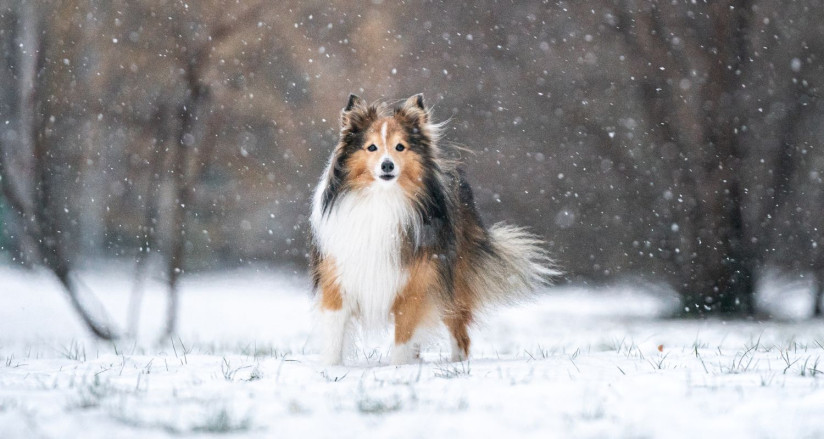Essential Tips to Keep Your Pet Safe, Warm, and Healthy this Winter Season
Whether you live somewhere with freezing temperatures or reside in a milder climate, winter can bring some challenges for dogs. Fortunately, a few simple precautions can keep your pet safe and cozy.
Know Your Breed
Certain breeds are insulated from the winter chill by their dense coats, allowing for extended time outdoors. But a comfortable fur coat doesn’t guarantee your dog likes the cold – every dog differs in its tolerance of temperature. Do not leave puppies, smaller, older, or shorthaired dogs outdoors in temperatures below 40 degrees. Pay attention to signs your dog may be feeling the winter elements, including shivering or begging to come inside. Invest in a dog sweater or coat for extra warmth and protection.
Proper Shelter
If your dog stays outside in the winter, check that their doghouse meets minimum safety criteria. Make sure the house is large enough for your pet to sit and stand in, but small enough to retain body heat. Face the house away from the weather and put a flap on the door. Keep it raised several inches off the ground and place straw or cedar shavings on the floor, replacing it often to keep their bedding dry.
Food and Water
Hydration is important year-round. Replace metal water dishes with a plastic or heated water bowl to make sure your dog’s tongue does not stick to the bowl. Change the water often to keep to keep it from freezing. Active dogs will burn more calories in cold weather and will need roughly 10 percent more food to compensate. If your dog is less active in colder months, decrease their food and be sure to schedule regular walks and playtime to avoid unhealthy weight gain.
Check Their Paws
It’s important to keep an eye on your dog’s paws through the winter months, even though some breeds have tougher paws than others. Ice and snow can get caught in the webbing between toes and cut toe pads, or even cause frostbite and hypothermia. Watch for symptoms like swelling, blackened or dead skin, and/or pale, gray, or blueish discoloration. Dog booties can be a great purchase for pets who will be spending lots of time outdoors in the winter months.
Household Toxins
Common products like ice melt or antifreeze are great for tackling winter weather but are poisonous if ingested by dogs. Be sure to purchase ice melt that is approved for use around pets, or ensure your dog stays away during and soon after use. Keep your dog clear from antifreeze, which is extremely toxic, and always read labels for other popular and helpful winter products to gauge their safety. If you believe your pet has swallowed antifreeze, contact your vet or animal hospital immediately.
Protect from Sunburns
Sunburns don’t just occur in the summer. Light-furred and pale skinned pets can also be susceptible to burning if their fur or skin catches the sun’s reflection off snow or ice. Purchase and use a pet-safe sunscreen, especially for those lighter-haired dogs.
Space Heaters, Candles and Fire
Whether you’re staying warm or creating a cozy ambience, it’s best to keep pets away from heaters, candles, and other sources of heat or flame. A stray tail wag can easily cause a fire, just as a brush with a space heater can mean a painful burn.
Frozen Surfaces
Keep a close eye on your dog around frozen lakes, ponds, creeks, or other bodies of water. Pooches can easily fall through thin ice and get trapped underneath. You can also help your canine companion avoid slipping and sliding on icy surfaces by keeping their nails trimmed, which give them a better grip.
Dry Eyes
Exposure to seasonal elements can cause intense dryness, which may lead to conjunctivitis, mucoid discharge, or irritated painful eyes. If your dog struggles with dry eyes, consult your veterinarian about eye lubricants to help them weather the winter months.
Related Articles
- Holiday Safety Tips for Your Dog
- Tips for Safe Travel with Your Dog
- Know What Poisons Lurk in your Home and Yard
